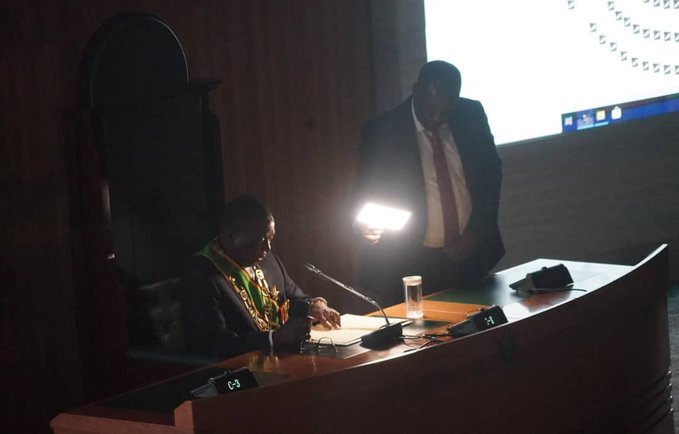Industry minister Mike Bimha says Zimbabwe's labour law reforms are far from being implemented despite repeated calls by employers to do so.
Among the reforms, employers are recommending the elimination of national employment councils - workers' representative bodies - and have bargaining done at company level.
"Reforms on labour laws are not going to happen anytime soon even though the appropriate ministry (Labour and Public Service) has already started consultative efforts with stakeholders through in an inter-ministerial committee in order to come up with a comprehensive framework," he told delegates at the GIBS/Mandel Economic Outlook symposium last week.
Bimha said there was no specific time frame on execution of the exercise, although Cabinet had adopted various measures that needed to be applied.
"Approval was given for labour law reforms that would introduce efficiencies in the economy and measures that would improve productivity at the firm level. In order to achieve this, collective bargaining should be at the company level so that wages and salaries agreed on are realistic and take into account productivity at company level," said Bimha.
This comes as late last year, the Confederation of Zimbabwe Industries (CZI) president Charles Msipa said government must urgently put timelines to the review and amend the Labour Act as the delay is bleeding many businesses.
Msipa noted that the long-dragging process was costing Zimbabwean companies as most needed to retrench, but could not do so as yet.
"The excuse that the law is still under review is getting old. In business, we put budgets and timelines to tasks and accomplish them.
The current laws are so inflexible and do not even apply to the environment we are operating in as business," said Msipa.
The on-going amendment to the Labour Act is meant for workers' salaries to correspond with real productivity levels obtaining in the public sector as efforts to arrest the country's economic downturn get underway.
The negotiations started in 2009 during the inclusive government era, mainly as part of the implementation of the International Labour Organisation (ILO) Commission of Inquiry's recommendations and the parties had narrowed their differences on almost all the issues.
Zimbabwe subscribes to eight of 26 ILO labour conventions while the current review of the Labour Act would strengthen protections on child labour, forced labour and non-discrimination as required by the ILO.
Msipa said the current economic conditions only worsened the plight of companies with most filling for liquidation due to the bleeding salary expenses they have to endure.
"Sometimes companies just apply for judicial management and liquidation as they cannot afford to retrench," the CZI boss said.
Finance minister Patrick Chinamasa had earlier last year said that consultations with Cabinet in the amendment process were almost done.
Chinamasa said Cabinet had agreed on amending the Labour Act Chapter 28:01 to deal with constraints in retrenchments, terminal benefits, downsizing, working hours and arbitral awards system.
This, he said, was after the realisation that the economy was operating on high costs and low productivity which had repercussions on its competitiveness.
However, trade union organisations have, however, accused government of rushing to make a decision devoid of thorough consultations, and also without considering input from stakeholders.
"We never discussed any employment flexibility or productivity-linked wages as part of the Labour Act review. We are surprised that Chinamasa has already tabled labour law reform before Cabinet," said ZCTU secretary-general Japhet Moyo.
- dailynews
 Parliament apologises to Mnangagwa
Parliament apologises to Mnangagwa  SA decry 'non-existent' Beitbridge border post security
SA decry 'non-existent' Beitbridge border post security  Millions celebrate Diwali festival in India
Millions celebrate Diwali festival in India  Zimbabwe's dollar stock exchange surges 45%
Zimbabwe's dollar stock exchange surges 45%  Gold edges up as traders await guidance
Gold edges up as traders await guidance  Karo Platinum Project capex rises to US$546m
Karo Platinum Project capex rises to US$546m  Young Investment Professional (YIP) Graduate Programme 2019
Young Investment Professional (YIP) Graduate Programme 2019 









 Young Investment Professional (YIP) Graduate Programme 2019
Young Investment Professional (YIP) Graduate Programme 2019
Editor's Pick